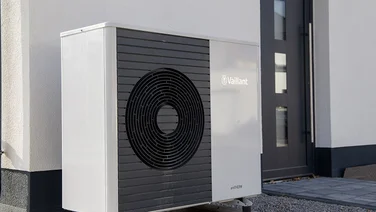We receive a small fee from trusted installers when you request a quote through our site. This helps us keep our content independent, well-researched and up to date – Learn more
In case it wasn’t obvious, there has been a massive increase in usage of personal protective equipment over the past few months. The COVID-19 pandemic has spurred everyone to use masks and gloves to protect themselves and others from the rampaging virus.
But even the smallest trend or event has some knock-on effects, and we can only imagine what kind of impacts COVID-19 is having on all sorts of industries and facets of life. And the environment does not escape these repercussions.
Reduced travel and emissions have certainly had a positive impact on the environment, but it’s not all good news. The PPE boom has caused a lot of litter, and unfortunately, this can take a while to degrade naturally. Let’s see just how long this degradation can take.
How much PPE is disposed of improperly?
To work out how much of a worry this issue really is, we’ll need to see how much PPE is being improperly disposed of. 100 masks being thrown into the ocean is definitely awful, but wouldn’t be the end of the world.
Unfortunately it’s not just 100 masks. We don’t have a firm number on what’s being thrown away incorrectly, as we can’t count what we can’t see, but environmental organization WWF estimates that if 1% of masks are improperly disposed of, it could amount to 10 million masks a month entering our environment.
And that’s just masks – a lot of people are going the whole nine yards and wearing gloves as well, a considerable amount of which will no doubt also be discarded on the sidewalk or improperly thrown away. While far from ideal, this wouldn’t be the worst thing in the world if everything decomposed within a year or two. But they take a bit longer than that.

How long do masks take to degrade?
You have two kinds of masks – disposable and reusable. Hopefully people aren’t throwing away reusable masks en masse, but if they did, it would actually take the same amount of time to degrade as it would for a disposable mask.
The fabric of the mask would degrade pretty quickly, as all fabric does, leaving just the same filter that is used by disposable masks.
Here is where the issue lies – these filters are made from a thermoplastic known as polypropylene. This substance takes 500 years to decompose. If not disposed of properly, these masks would litter our beaches and seas for generations.
Our attitude to disposable masks has been at odds with the results of The Eco Experts’ National Home Energy Survey, which said that 60% of UK residents want to go greener.
How long do gloves take to degrade?
Just like masks, there are a few different varieties of gloves. And also just like masks, there are some kinds of gloves that you’re hopefully not throwing away after use. A pair of leather gloves is obviously supposed to be used more than a couple of times, after all.
Leather gloves
For curiosity’s sake, let’s say you did lose a pair of leather gloves. You’d think since leather is made out of organic material (being the skin of a cow), maybe it wouldn’t take too long to decompose.
Well, your thinking would be sound, but not correct. Leather has been intentionally preserved to last far longer than it would normally. Otherwise it would start decomposing as you wear it, and no one wants that.
On average, it can take leather up to 50 years to completely decompose, so try not to lose your pair (they can also be pretty expensive, so that’s another good reason to keep your eyes on them.)

Disposable gloves
But those don’t usually qualify as PPE, so let’s look at the kind of gloves that are usually used for protective purposes. Generally, people use latex, vinyl, or nitrile gloves.
We’ll start with latex gloves, and with some good news! Latex gloves take a relatively short time to break down. Natural latex gloves take around 5 years to degrade – so while you won’t be able to watch them crumble before your very eyes, some people do use them in compost heaps.
Vinyl gloves are the worst of our candidates, as vinyl is known for being non-biodegradable. Vinyl is a kind of plastic, and while plastic decomposition times vary based on the kinds of polymers they’re made up of, they all take a long time to fall apart.
Plastic bottles, for example, take around 400 years to decompose, while plastic bags take 10-20 years. But some plastics take an estimated 1,000 years to naturally decompose. There’s no number on vinyl gloves specifically, but it’ll certainly take longer than an average human lifetime to see them disappear.
Finally, nitrile gloves. These gloves are the highest grade in the form of protection, and are usually used by medical professionals or even laboratory technicians, as they’re resilient to tears and chemicals.
But as you might be able to tell, when something is this resilient, it can take a bit of time to decompose. Indeed, nitrile can take up to centuries to degrade. However, like we said, it’s a bit harder to find these gloves on the common market – they’re mostly handled by professional institutions, meaning they’re usually disposed of correctly.
Overall
COVID-19 is at the forefront of everyone’s mind at the moment, so it’s easy to gloss over the repercussions of such a worldwide event. Needless to say, it will have ripple effects on our economy, our way of life, and our environment.
While it’s a good idea to stay safe and use the appropriate forms of PPE, please don’t forget to dispose of it correctly. Some special brands of gloves can be recycled (it will usually say so on the box), but at the very least, throw them in the rubbish so they can be taken to a landfill and biodegrade in a controlled environment.
Every mask or glove that you stop entering the cycle of litter is a personal victory, and something you should be proud of.







